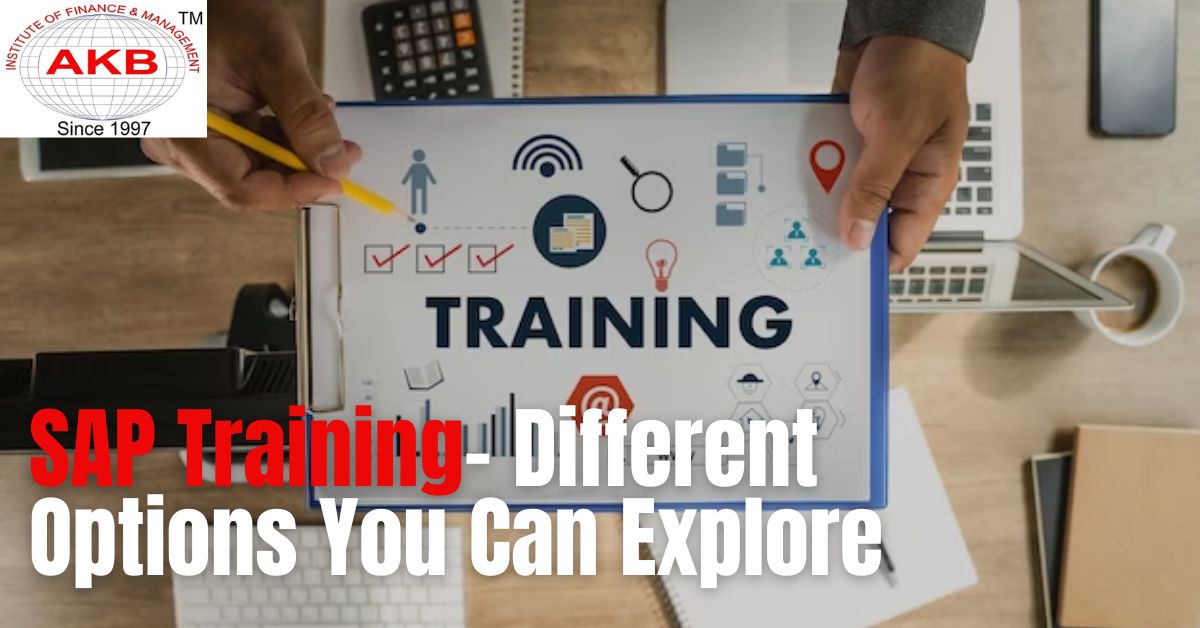
Understanding enterprise resource planning (ERP) systems like SAP can be a huge advantage in today’s fast-moving business world. SAP, which stands for Systems, Applications, and Products, is a popular software many companies use worldwide. Learning how to use SAP is a wise choice for individuals and businesses. Whether you’re a professional looking to improve your career or a company trying to make your work smoother, there are various ways to learn SAP. This blog will explain these different learning options so you can pick the one that fits you best.
I. Traditional Classroom Learning
Think of traditional classroom training as the classic way to learn SAP. It involves attending in-person classes led by experienced instructors. Here’s why some folks love it:
1. Structured Learning: You get a step-by-step curriculum that covers all the SAP essentials in a well-organized manner.
2. Expert Guidance: Instructors help you answer your questions and guide you through the material.
3. Hands-on Practice: Many classroom courses let you get your hands dirty with practical exercises, helping you apply what you’ve learned.
4. Interaction: You’ll meet fellow learners, opening up opportunities for networking and knowledge sharing.
However, this approach may not be the best fit for everyone. It can be time-consuming, and costs can add up when you factor in travel and accommodation.
II. Online Instructor-Led Training
Online instructor-led training gives you the benefits of classroom learning without needing to be physically present.
1. Flexibility: You can access the training from anywhere, making it ideal for those with busy schedules or living far from training centers.
2. Cost-Efficiency: Online courses often cost less since you don’t have to worry about travel and accommodation expenses.
3. Interactive Learning: Most online instructor-led courses have live sessions where you can interact with instructors and other learners.
4. Recorded Sessions: In case you miss a session, many platforms record them so you can catch up later.
III. Self-Paced Online Courses
If you prefer learning independently, self-paced online courses could be your jam. These courses offer:
1. Flexibility: You’re in charge of your study schedule, perfect for folks with unpredictable routines.
2. Affordability: Self-paced courses are often budget-friendly compared to live sessions.
3. Lifetime Access: Many platforms give you access to course materials indefinitely, so you can revisit them whenever you need a refresher.
However, self-paced learning demands discipline since there’s no live instructor or classmates for immediate interaction and feedback.
IV. SAP Learning Hub
SAP Learning Hub is an official online platform offered directly by SAP. It’s a treasure trove of SAP courses and certifications. Here’s why it’s a strong contender:
1. Comprehensive Content: You’ll find many SAP training materials, from e-learning courses to handbooks and certification exams.
2. Always Updated: Content stays current, keeping you in the loop with the latest SAP developments.
3. Certification Prep: You can prepare for SAP certification exams on the platform.
4. Community Access: SAP Learning Hub also connects you with a community of learners and experts for networking and support.
While SAP Learning Hub is a fantastic resource, it might involve a subscription fee, which you’ll want to consider in your budget.
V. SAP Training Partners
SAP has a network of authorized training partners worldwide. These partners offer diverse training options, including classroom, online, and blended formats. Opting for an SAP training partner has several advantages:
1. Official Curriculum: Training partners follow SAP’s official curriculum, ensuring top-notch content.
2. Certification Access: Many SAP training partners can administer certification exams.
3. Tailored Training: Some partners specialize in specific industries, tailoring their training to suit unique business needs.
When choosing an SAP training partner, ensure they are accredited to guarantee a high-quality education.
VI. Corporate Training
Businesses looking to upskill their teams can benefit from corporate SAP training. SAP, authorized training partners, or independent consultants can provide corporate training. Here’s why it’s a win-win for organizations:
1. Customized Learning: Training can be customized to match your organization’s specific requirements and processes.
2. Team Building: Employees learn together, fostering teamwork as they can apply their new skills collectively.
3. Cost Savings: Group training often results in lower employee costs than individual training.
However, organizing schedules and aligning training with daily operations can be a logistical challenge for companies.
VII. SAP Books And Documentation
In addition to formal training, you can complement your SAP knowledge by exploring SAP books and official documentation. SAP provides comprehensive guides for its software, and numerous experts have written books on the subject. This option is beneficial if you enjoy self-study or want to delve deeper into specific SAP topics.
Conclusion
SAP Learning Hub is your go-to resource for a comprehensive and interactive learning experience. It’s a treasure trove of up-to-date SAP courses and certifications. On the other hand, SAP training partners provide official curriculum-based education, often focusing on specific industries.
Customised corporate training can be a game-changer if you’re a business seeking to supercharge your team’s SAP skills. It enhances skills, fosters teamwork, and boosts efficiency within your organization.
Here at AKBIFM, we understand the importance of SAP training. We offer a wide range of options, including SAP courses in NIT, SAP training courses in NIT, SAP training in NIT, and we proudly serve as a leading SAP training institute in NIT. Our mission is to empower individuals and organizations to thrive in the ever-evolving SAP landscape. Explore our offerings and embark on your SAP journey with confidence. Your success is our priority.



